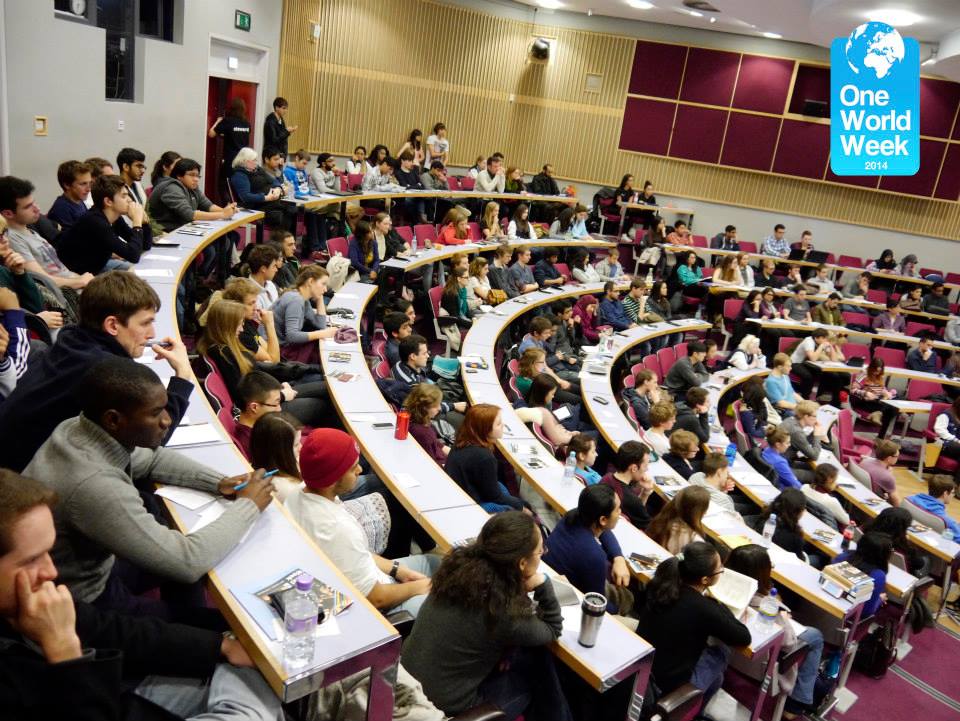How is One World Week changing the conversation?
The Boar looks at the various issues covered at the One World Week forums and conference this year.
National Identity
April Roach
Dr John Hutcherson, associate professor in Nationalism in Europe at the London School of Economics and vice president of the Association for the study of Ethnicity gave the first talk. He defined globalisation as the “intensification of interconnections of populations of the world.”
His main argument was that nation states have lost their salience: “Our concept of the global is refracted through our nationallenses” and through our own national interests.
There are still many planetary problems which cut across interests of nation states such as global warming.
The next speaker, Sam Bowman, is deputy director of the Adam Smith Institute, Britain’s leading libertarian think tank and gave his presentation on “Immigration in the UK: what’s good and what’s not”.
The presentation highlighted examples of inequality by comparing workers’ earnings cross the world. A factory worker in Bangladesh might hope to earn an annual salary of $1000 while a factory worker in England could earn $40,000 per annum.
The final speaker was a former Warwick student, Katrina Ammitzboell, a Danish diplomat and consultant for think tanks. Her presentation on ‘National identities and state building in fragile states’ provided real life case studies based on her personal experiences working in places like Afghanistan.
The Future of Food
Mallika Vaznaik / Amber Lascelles
The discussion was started by Peter Olsen, who works with the food consultancy ‘All Food Experts’. He talked about the importance of food innovation. He proposed open innovation as a cheap, fast and effective solution wherein private food companies open up the innovation units of their businesses to experts in the field of research and development to solve global food problems.
An interesting innovation Olsen mentioned was a 3-D food printing machine, which when fed nutrient pastes could print pizzas, burgers and mousse. This is now available in markets in the United States of America.
Chris Maughan, is the founder of grass roots organisation Warwick University Food Co-Op and he is also involved in the sustainable food project Coventry Food Union.
He believes the world needs to find innovative ways to make soil resilient, rather than bandaging the problem with expensive fertilisers.
The Problem of Student Integration
Alex Ball
The workshop was led by Helen Spencer-Oatey from the University of Warwick’s Centre for Applied Linguistics, and addressed how integration should be defined, issues preventing it from occurring and also how we might introduce strategies for promoting integration in difficult circumstances.
Participants divided into groups to consider comments from both international and British students regarding their experiences of integration. Elaine Meskhi, a fourth-year Engineering undergraduate who led the organisation of the conference, said: “The variety of topics covered also gave all who attended a holistic view on how to become better global citizens.
Elaine also added: “[the] Conference is a relatively new event in One World Week. It only started 3 years ago and it has always been a paid event on Saturday.
“In order to make the event more accessible we decided to make it free and move it to a Friday so people wouldn’t have to travel onto campus especially.”
“The team this year are happy with the quality and variety of speakers and topics covered by the event. Also, my team who were there the whole day said they really enjoyed it and left with smiles on their faces.”

Comments